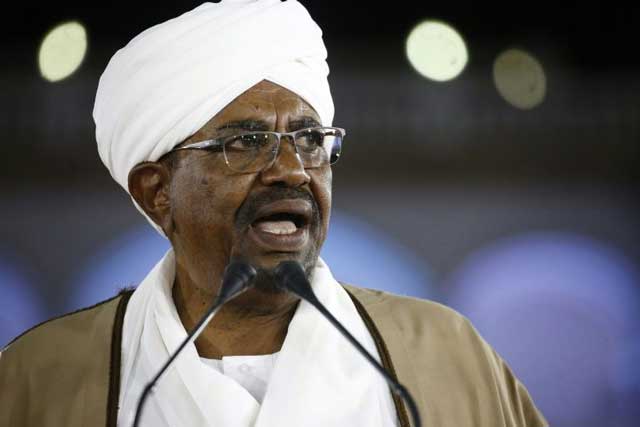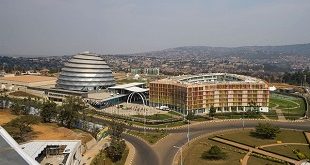
Khartoum, Sudan | AFP | Since his ouster last year, Sudan’s veteran leader Omar al-Bashir has been detained and convicted of corruption, becoming the Middle East’s latest fallen strongman.
The 76-year-old, held in Khartoum’s Kober prison where many of his opponents were detained during his rule, had ruthlessly crushed dissent after his rise to power in a 1989 Islamist-backed coup.
For three decades, he tenaciously held onto power through several bouts of protests, even after the 2011 Arab Spring revolts that toppled Hosni Mubarak of Egypt and Libyan leader Moamer Kadhafi.
Bashir’s fate, however, was sealed after his own military reacted to mounting popular anger and ousted him in April last year after months of street demonstrations.
He was handed a two-year sentence over corruption charges in December and faces separate charges over the deaths of protesters and the 1989 coup that brought him to power.
An appeals court upheld the sentence on Wednesday.
The former leader has also been indicted by the International Criminal Court (ICC) in The Hague over war crimes and genocide in the war-ravaged Darfur region of western Sudan.
One of Africa’s longest-serving presidents, Bashir showed many different faces during his 30 years at the helm.
Known for his trademark dancing and waving of a cane before addressing loyalists, Bashir had remained defiant in the face of growing street protests before his overthrow.
He long proved himself a political survivor, evading not only the ICC but also a myriad of domestic challenges ranging from economic misery to bloody internal conflicts.
– Darfur conflict –
Bashir was indicted by the ICC over the Darfur conflict that erupted in 2003 when ethnic minority rebels took up arms against his Arab-dominated government, accusing it of political and economic marginalisation of their region.
The United Nations estimates around 300,000 people were killed and 2.5 million others displaced in the conflict.
Human rights groups say Khartoum targeted suspected pro-rebel ethnic groups with a scorched earth policy, raping, killing, looting and burning villages.
Bashir openly defied the ICC, travelling overseas within Africa and further afield to countries including Russia and China and winning re-election in 2010 and 2015 in polls boycotted by opposition groups.
The ex-president even flew to Damascus, just days before protests erupted at home, to meet Syria’s President Bashar al-Assad.
It was not until February that Sudan’s transitional authorities who came to power months after his ouster agreed he be handed over to the ICC.
– Protests –
Bashir, who has two wives and no children, was born in 1944 in Hosh Bannaga, north of Khartoum, to a farming family.
He entered the military at a young age, rising through the ranks and joining an elite parachute regiment.
He fought alongside the Egyptian army in the 1973 Arab-Israeli war.
In 1989, as brigade commander, he led a bloodless coup orchestrated by Islamist scholar Hassan al-Turabi against a democratically-elected government then led by Sadiq al-Mahdi.
A career soldier, Bashir was known for his populist touch, insisting on being close to crowds and addressing them in colloquial Sudanese Arabic.
“Bashir became skilful over time. He learned the trade. At the beginning, he was not a prominent figure,” said Marc Lavergne, an Africa expert at the National Centre for Scientific Research in Paris.
He made several public appearances even as protests raged against him following his government’s decision in December 2018 to triple bread prices, and as Sudan grappled with shortages of food, medicines and foreign currency.
At a rally in January 2019, in the northern city of Atbara, Bashir voiced his disdain for protesters calling them “traitors”, “conspirators” and “rats” that should “return to their holes”.
But the protests kept going for weeks until tens of thousands marched on April 6 to set up a sprawling encampment outside the army headquarters in Khartoum.
Months of unrest and clashes with security forces left dozens dead, hundreds wounded and thousands jailed.
– Hosting bin Laden –
Between 1992 and 1996, Bashir led Sudan towards a more radical brand of Islam, hosting Al-Qaeda founder Osama bin Laden, and he sent jihadist volunteers to fight in the country’s civil war with the south Sudanese.
Bin Laden was expelled under US pressure after Washington placed Sudan on its list of “state sponsors of terrorism”.
Under Bashir’s rule, ethnically diverse Sudan saw the south gain its independence in 2011 after two decades of conflict between the Arab Muslim north and the mainly Christian or animist south.
The secession — under a peace deal that Bashir accepted — saw the south take the bulk of Sudan’s oil fields.
As economic woes mounted, Bashir’s cash-strapped administration broke ties with Shiite Iran in favour of its rival, Saudi Arabia.
Khartoum provided troops to the Saudi-led coalition battling Iran-aligned Shiite rebels in Yemen, in a move criticised by Bashir’s opponents at home.
In his trial last year, Bashir admitted to having received millions of dollars from Saudi royals, including the kingdom’s de facto ruler Crown Prince Mohammed bin Salman.
He insisted the funds “were not used for private interests but as donations” to support individuals and entities.
 The Independent Uganda: You get the Truth we Pay the Price
The Independent Uganda: You get the Truth we Pay the Price



